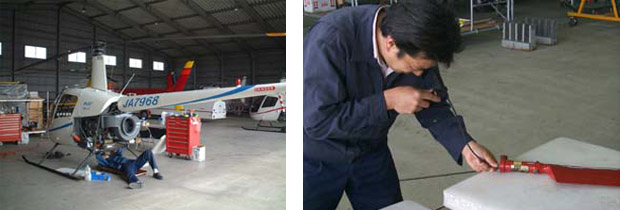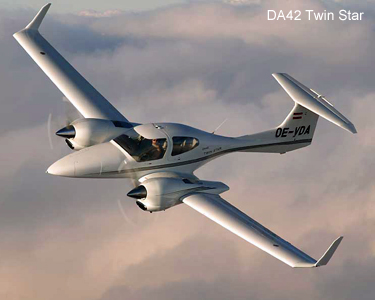From aircraft mechanic Mr. Nakata
The importance of performing maintenance according to the manual
There’s many manuals associated with an aircraft and can be a daunting task to manage all of them, but at Alpha Aviation we read them carefully and strive to get an absolute grasp of them at all times to be ready for all eventualities.
The importance of the maintenance environment
In order to do the maintenance work, we ensure a safe, dry hangar/storage for our aircraft, away from the elements, ensure availability of special tools, measuring equipment, hoists/winches, cleaning equipment etc. Alpha Aviation is always prepared with all this and more to ensure that we can perform a full overhaul on the Robinson Helicopters.
The importance of calibration
Both measuring equipment and machines have to be checked at regular intervals. No matter how carefully you follow the manuals, if the equipment isn’t sound it won’t help at all. In a condition where the tools are uncalibrated, the faults from the tools will precipitate to the aircraft. Alpha Aviation makes sure to use calibrated and sound tools at all times.
The danger of merely doing airworthiness checks in the paperwork
The airworthiness certificate is often seen as only a extraneous supplement. Let’s not label this as just an expense to be dealt with. It’s also a important thing for the user to recognize the intent of the law. If maintenance isn’t being done the aircraft will break and you can’t merely stop and pull to the curb in mid-air.
The difference between performing maintenance alone and in a group
You can’t do aircraft maintenance all on your own. In Alpha Aviation we try to avoid double-work by rigorously double-checking what we do. Because to err is human.
One day, a person starts performing routine maintenance on an aircraft he’s responsible for.
A: A veteran mechanic performs the maintenance without looking at manuals or worksheets.
B: Two inexperienced mechanics work while looking at manuals and worksheets.
— Which one of the two do you think is safer?
Experience
The way maintenance staff looks at experience and the importance of it is central to a problem.
There’s various paperwork with an aircraft, big and small alike. And those aircraft can be said to grow up, to develop, like children to adults. The mechanics look after the aircraft through repeated inspections and improvements while they “grow”.
The carrying out of that very daily maintenance is based in the maintenance manuals.
And these manuals stretch out over countless manufacturers, engine makers, and equipment makers.
The paperwork is continuously updated and we mechanics need to be regularly checking, thoroughly reading and understanding it. This in turn becomes the very foundation of the aforementioned “experience”.
In practical affairs, rather than have a decades-of-experience-veteran mechanic – who’s changing from large aircraft to small and not being satisfied with the challenge – taking care of a small plane, it’s probably better to have a young mechanic that has spent five years nurturing it, do that work.
Look at the manuals
It’s dangerous to rely primarily on experience. It’s tempting to think that one mechanic can sort out all on a small aircraft, because it comes down to much more. The right tooling – what special tools are needed for the aircraft – measuring instruments etc. It’s hard to keep it all in order and manage the large amount of paperwork as well.
It’s important not to ignore that because mechanics are also human and make mistakes, they need to employ that wisdom overall and double-check and check-out-check the projects they are working on.
At Alpha Aviation the so-called “veterans” as well as young mechanics work together as one to create the experience we’re talking about and work diligently in a efficient and protective environment to ensure safe flights for all the aircraft we’re involved in maintaining.
Furthermore, with vigor, freshness and innovation we attend to remodeling and retrofit of aircraft as well.
Is your helicopter being taken fully care of?


